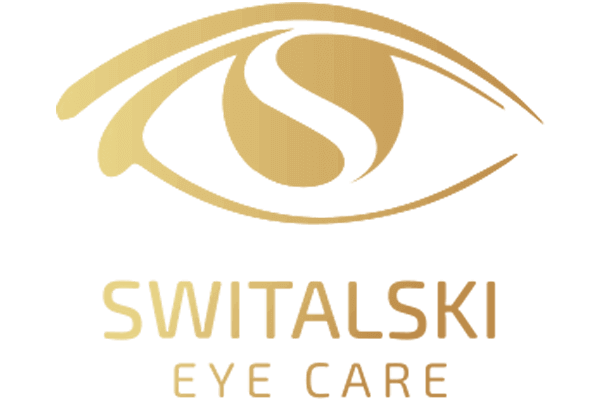
At Switalski Eye Care, we often hear patients say, “I can’t tell if it’s allergies or dry eye—my eyes are just always irritated.” One patient told us spring felt like a blur—constant tearing, burning, and blurry vision—but nothing seemed to work. The truth is, allergy symptoms and dry eye syndrome often overlap, and treating one while ignoring the other can lead to ongoing discomfort.
Let’s break down how to identify and manage both conditions—especially during allergy season.
What’s the Difference Between Dry Eye and Allergies?
Though they may feel similar, dry eye and eye allergies are caused by different things:
- Dry eye is when your eyes don’t produce enough tears—or the right kind of tears—to stay properly hydrated.
- Allergies happen when your immune system reacts to substances like pollen, dust, or mold, releasing histamines that cause itching and inflammation.
Shared symptoms include:
- Burning or stinging sensations
- Redness
- Tearing
- Gritty or tired feeling
But allergy symptoms typically include itching and often worsen outdoors, while dry eye may feel worse after screen time or in dry environments.
Can You Have Dry Eyes and Eye Allergies at the Same Time?
Yes—and it’s more common than you might think. In fact, having dry eyes can make allergy symptoms feel worse, because your eyes don’t flush out allergens efficiently. Many patients deal with both simultaneously, especially during spring and fall, when pollen counts rise and indoor air stays dry due to HVAC systems.
How to Treat Dry Eyes and Allergies Together
Managing both conditions at once means using a combined approach—without making one worse while treating the other.
1. Use Preservative-Free Artificial Tears
These provide moisture for dry eyes and help rinse allergens from the eye’s surface. Avoid drops with preservatives—they can irritate both conditions over time.
2. Apply Cold Compresses
A cool compress helps soothe inflammation and reduce itching. It also calms swollen eyelids and provides relief without medication.
3. Consider Allergy Eye Drops (with Caution)
Over-the-counter antihistamine drops can reduce itching and redness—but some can dry your eyes out. Ask your eye doctor to recommend one that’s safe for dry eye sufferers.
4. Use a HEPA Filter Indoors
Allergen-free air helps reduce your eye’s exposure to triggers. A high-quality air purifier can make a big difference at home or work.
5. Blink More Often During Screen Use
When you're focused on screens, you blink less—worsening dryness. Use the 20-20-20 rule: every 20 minutes, look 20 feet away for 20 seconds.
When to See Our Eye Doctor’s Throughout Greater Dallas
If your eyes feel irritated for more than a few days, or you’ve tried over-the-counter remedies without success, it’s time for an exam. At Switalski Eye Care, we can diagnose whether your symptoms are allergy-related, dry eye syndrome, or both—and create a custom treatment plan.
We offer in-office treatments and long-term solutions including prescription drops, punctal plugs for dry eye, and allergy management strategies.
Find Relief at Switalski Eye Care
Spring doesn’t have to be uncomfortable. Our experienced eye doctors will help you get to the root of your eye irritation—whether it's from allergies, dry eye, or both—and build a personalized treatment plan that works.
With 13 conveniently located eye care offices across Greater Dallas, finding expert care for your eye health has never been easier. Whether you’re near home, work, or school, relief is just around the corner.
Book your comprehensive eye exam, and let us help you stay clear, comfortable, and symptom-free this allergy season.
